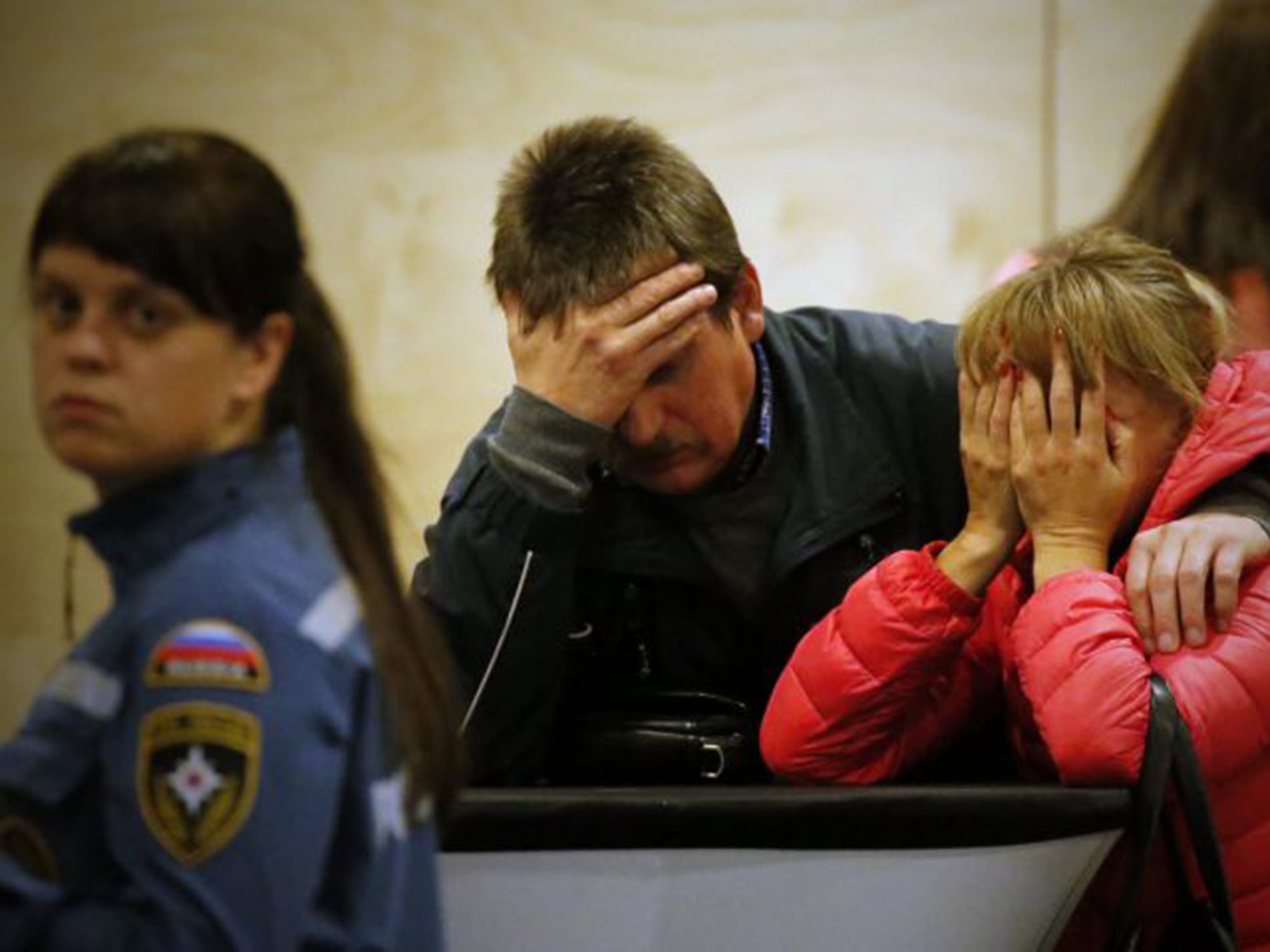Russian plane crash: Tragedy strikes Egypt's tourist trade after Airbus A321 crashes in Sinai
217 holidaymakers lost their lives when the plane crashed in central Sinai

Your support helps us to tell the story
From reproductive rights to climate change to Big Tech, The Independent is on the ground when the story is developing. Whether it's investigating the financials of Elon Musk's pro-Trump PAC or producing our latest documentary, 'The A Word', which shines a light on the American women fighting for reproductive rights, we know how important it is to parse out the facts from the messaging.
At such a critical moment in US history, we need reporters on the ground. Your donation allows us to keep sending journalists to speak to both sides of the story.
The Independent is trusted by Americans across the entire political spectrum. And unlike many other quality news outlets, we choose not to lock Americans out of our reporting and analysis with paywalls. We believe quality journalism should be available to everyone, paid for by those who can afford it.
Your support makes all the difference.1 November should have been an optimistic day for tourism in Egypt. It marks the start of the main tourist season in this vast, welcoming and beautiful nation, with the richest archaeology in the world and miles of superb beaches. And Egypt’s Minister of Tourism, Hisham Zaazou. is travelling to Britain to attend World Travel Market, which begins in London on 2 November.
At the Egyptian State Tourist Office stand, which is in the shape of a Pharaonic boat and offers free henna tattoos, he was planning to announce that the country’s tourism industry is finally showing signs of recovery.
Instead, Mr Zaazou is likely to face questions about the fate of flight 7K9268 and the 217 holidaymakers who lost their lives in the early hours of 31 October.
Professional accident investigators from Egypt, Russia, Europe and the US will, in time, establish what caused an Airbus A321 to fall out of clear skies on a routine charter flight. It may well be that the fatal sequence of events has nothing to do with the country where the journey began. But the tragedy has brought renewed attention to the risks that prevail in a country that is so dependent on tourism. It draws attention to the insurgency that has been going on for years between Islamists and the Egyptian army.
In North Sinai, where the plane crashed, the Foreign Office advises against all travel to the area and warns of “regular bomb attacks against government buildings, security forces and energy infrastructure”.
“The al-Arish area has seen many attacks, but the whole of the North Sinai region is at risk,” it says.
The map that accompanies the official FCO advice shows most of the country as off limits, except for the Nile Valley, some resort pockets along the Red Sea coast of the Sinai peninsula, and stretches of the Mediterranean Coast. This leaves open the locations that attract the vast majority of British visitors - whether they are seeking sun or culture.
But 18 years of sporadic terrorist attacks, often aimed at tourists, have dampened demand for holidays in Egypt. The “friendly fire” incident in September, in which Egyptian security forces mistakenly killed 12 Egyptian and Mexican members of a tour group in the western desert, added to the image of country out of control.
While other destinations are reporting surges in visitors and the value they bring, Egypt’s tourism earnings are still below where they were a decade ago.
According to the World Travel and Tourism Council, one Egyptian in nine depends on tourism. The most useful thing that conscientious Westerners can do to help the country and its 85m people is to go on holiday to Egypt and spend freely. But after another tragedy linked to the nation, it will take more than offering travel agents henna tattoos at a trade show to trigger a rush of British visitors. The tourist minister faces an uphill task in re-building trust among travellers.
Join our commenting forum
Join thought-provoking conversations, follow other Independent readers and see their replies
Comments